
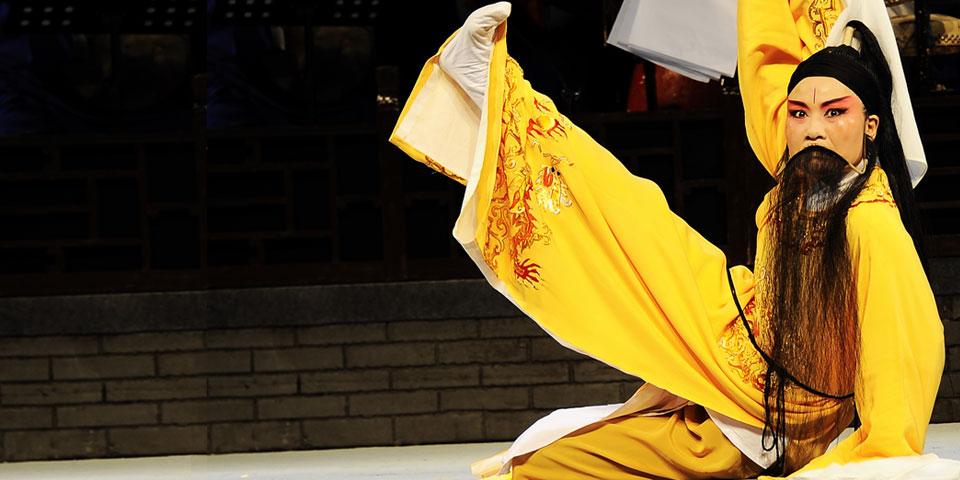
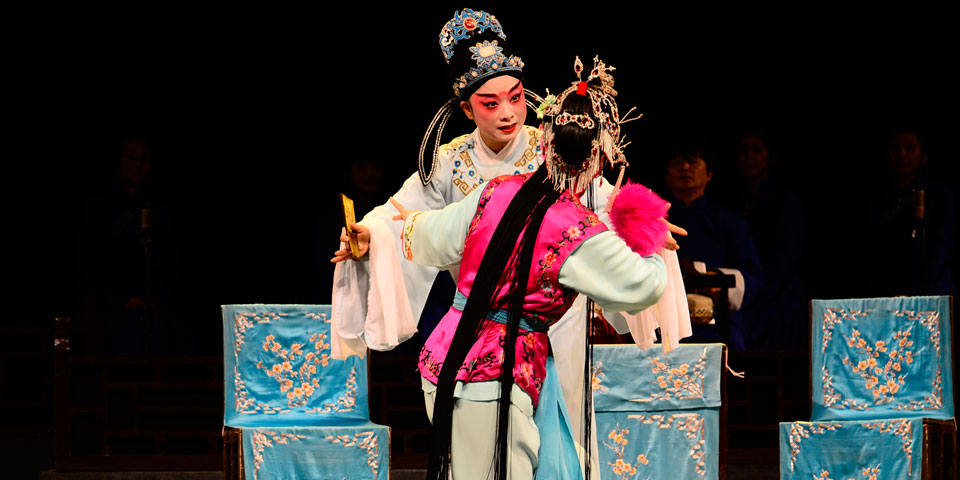
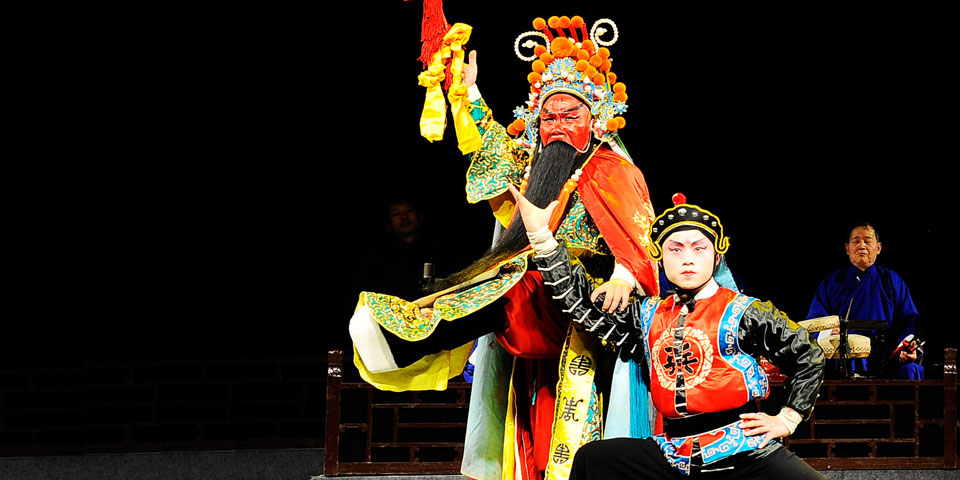

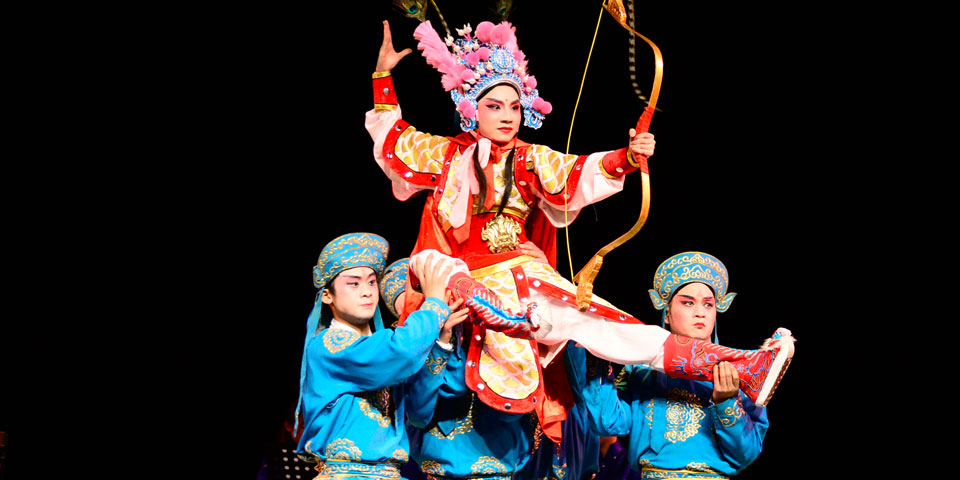
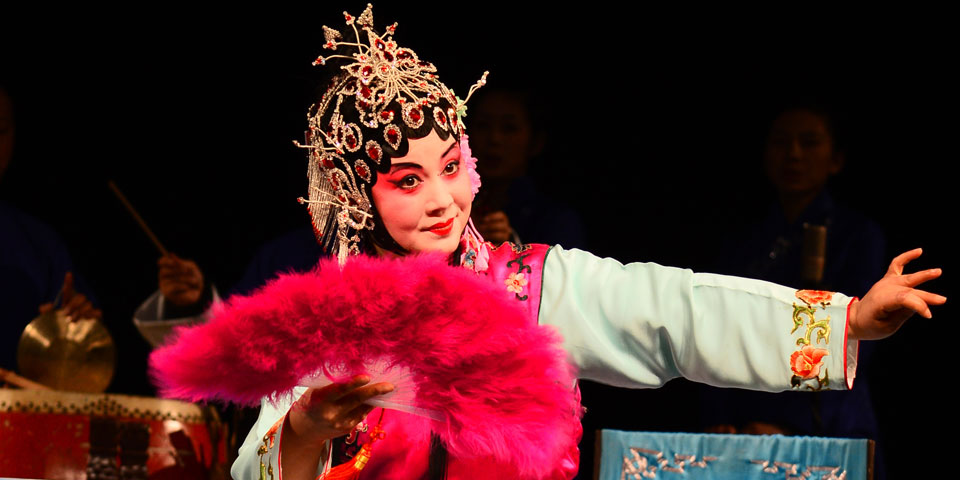
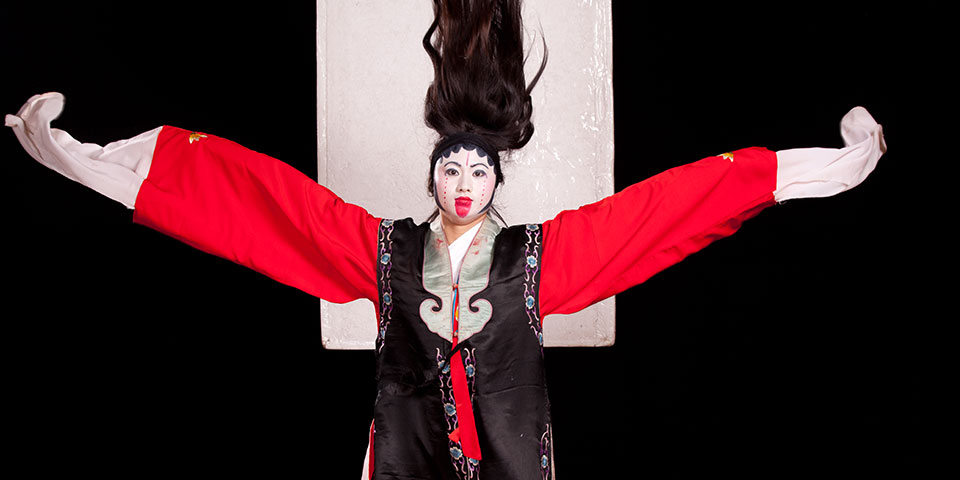
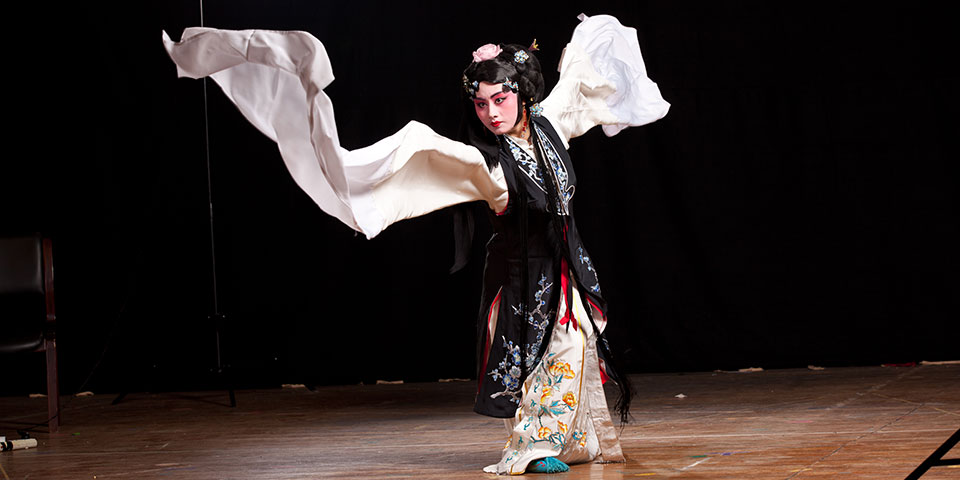
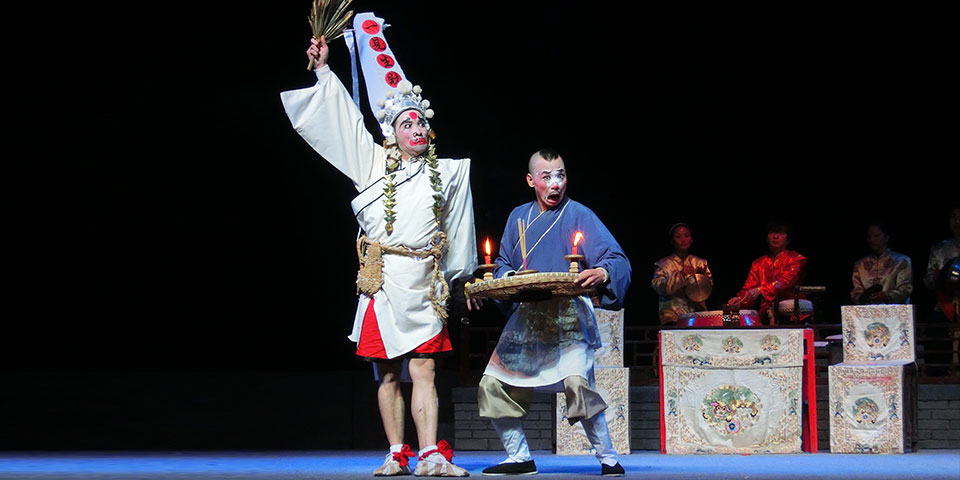
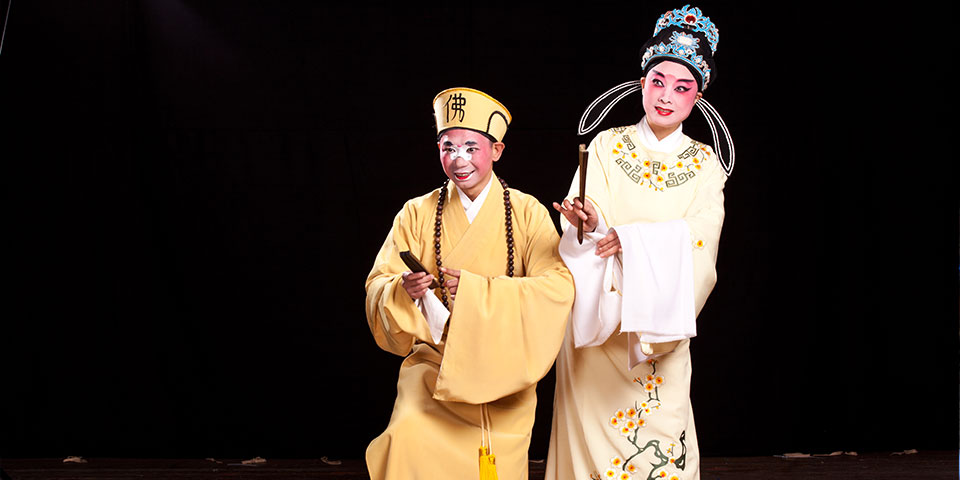
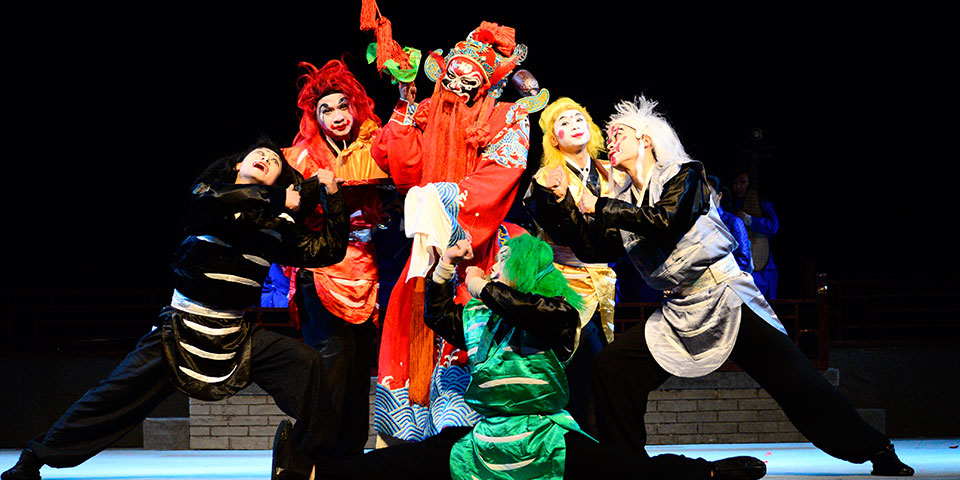
Xinchang Diaoqiang Troupe of Zhejiang
Wang Ying
Wang Ying is a National Class Two Performer specialized in laosheng (old man roles). She starred in many adapted or original productions, such as Suicide on Mei Hill, Cheng Ying Saving the Orphan, The Old Water-carrier etc.. She has performed in many showcases at City, Province and National levels, including Outstanding Performance Award and Outstanding Xiaobaihua Award. She was named the 4th Generation Exponent of the Diaoqiang Art in 2008.
Pan Yuejun
Pan Yuejun is a National Class Two Performer specialized in hualian (painted face roles). His repertoire includes Three Calls to Fan Lihua, Qin Xianglian, The Old Water Carrier and many others. He was the winner of the Xiaobaihua Award of Shaoxing City, a Class One Award – Individual at the 10th Shaoxing Theatre Festival.
Shi Linqin
Shi Linqin is a National Class Two Performer specialized in xiaosheng (young, civil male roles). She has starred in The Old Water Carrier, Tielin Pass etc. and won a Class One Award for Performers at the 5th Shaoxing Theatre Festival, a Shaoxing City Xiaobaihua Award, a Young Actor Performance Award at the Zhejiang Sub-genres Exchange Show and an Outstanding Performance Award at the 10th Zhejiang Theater Festival.
Tian Min
Tian Min is a National Class Two Performer specialized in chou (comic roles). He is solidly trained in the martial arts, and portrays his stage personae with vivacity and humour. He won the Outstanding Performance Award, the Galaxy Award of Zhejiang Province, and the Gold Award at the Mini-theatre Members’ Showcase at the 8th and 11th Shaoxing Theatre Festivals.
Wang Yili
Wang Yili is a National Class Two Performer and was the principal in The Investiture of the Gods, The Mayor’s Verdict etc.. She won a Class One Award for Performance at the 9th Shaoxing City Theatre Festival, Performance Awards at the 8th Zhejiang Theatre Festival and the 11th Shaoxing City Theatre Festival.
Chen Xudong
Chen Xudong specialized in chou (comic roles). He has starred in Waylaying the Horse, At the Crossroad, A Visit to the Temple from The Story of the West Chamber (Northern repertory), and the Monk Mulian Series. He won a Performance Award at the 11th Shaoxing Theatre Festival.
Ying Yue
Ying Yue is a National Class Two Performer specialized in huadan (flirtatious female roles), and has starred in Autumn River, Yearning for the Secular World. She won an Outstanding Xiaobaihua Awards at the Second Xiaobaihua Competition, and a Xiaohaihua Award at Zhejiang of the same competition.
Pan Haojun
Pan Haojun specializes in chou (comic roles), and has starred in The Old Water-carrier, Thee Call to Fan Lihua, Cheng Ying Saving the Orphan etc.. He won a Gold Award with his role as the Judge in Hell in the Monk Mulian Series at the Showcase of Playlets of Zhejiang.
Zhang Yinping
Zhang Yinping is a National Class Two Performer specialized in huadan (flirtatious female roles). Her repertoire includes The Investitures of the Gods, The Old Water-carrier, Finding the Jade Bangle and Invitation to Zhang the Scholar from The Story of the West Chamber (Northern repertory).
|
|
||||||||||||||||
| • With Chinese and English surtitles. • Please refer to the ‘Extension Activities’ page for details of other extension activities. |
|||||||||||||||||
Click here to download the transcript.





